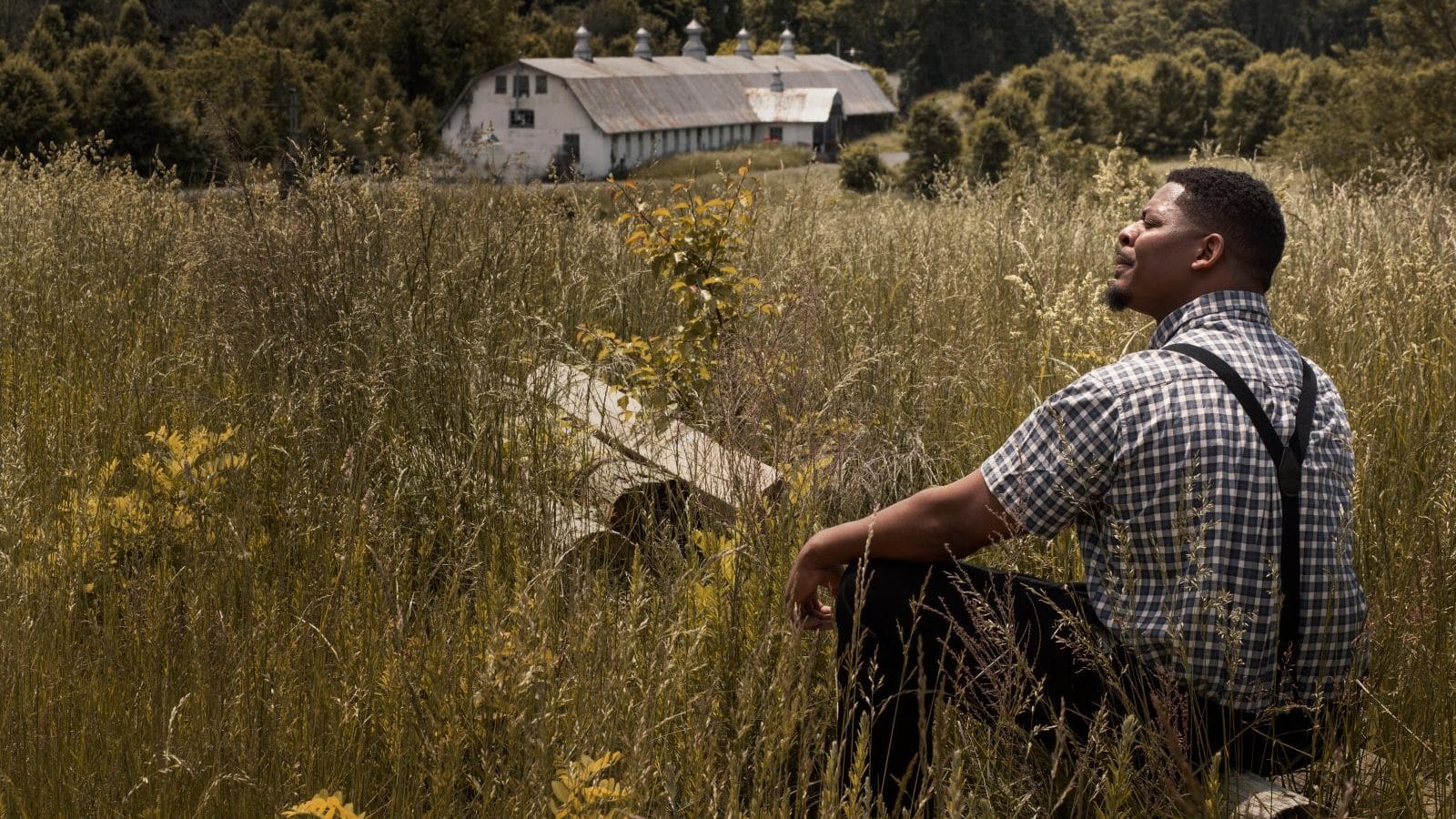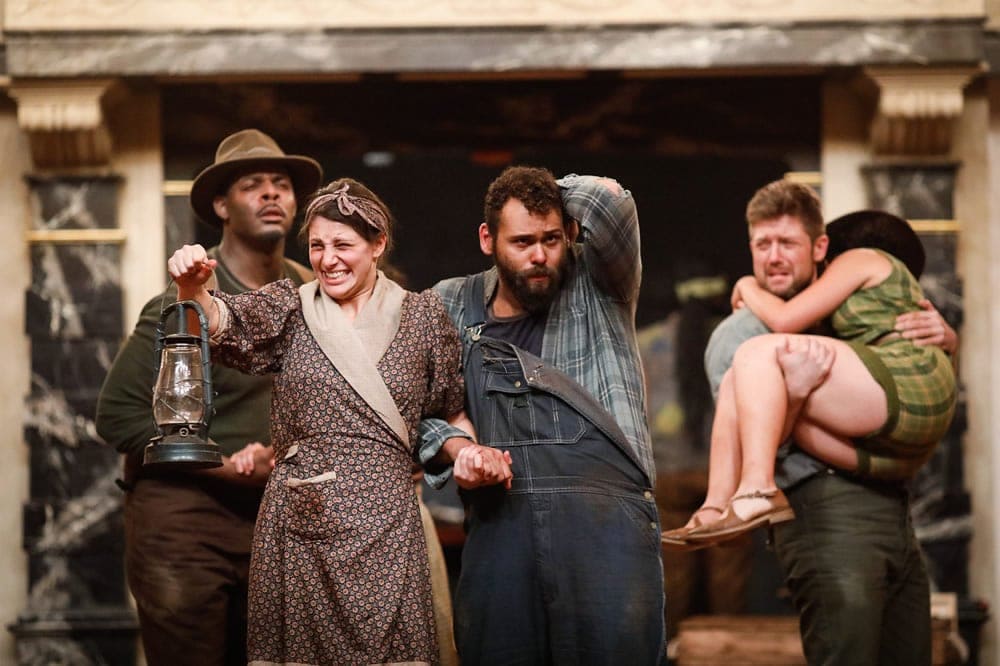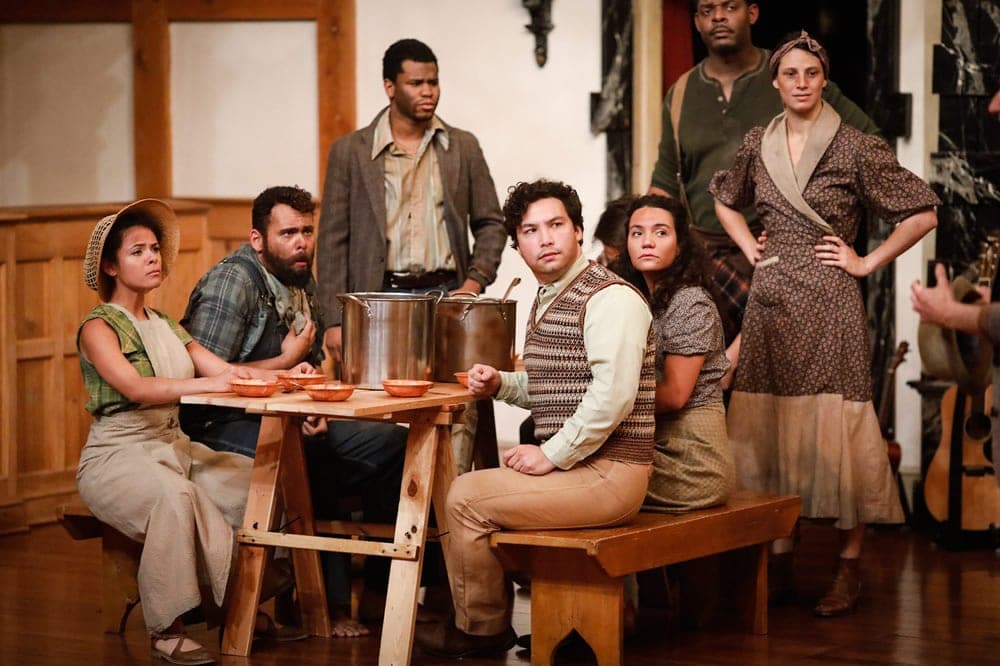“It’s need that makes all the trouble” says (ex-) preacher Jim Casy in John Steinbeck’s Grapes of Wrath. That, in a nutshell, is the ordeal of our times, as millions live without paychecks and scramble to find some way to keep roofs over their heads.
Yes, it’s the virus that makes the headlines today, but when we’re done listening to medical authorities and governors and (if we can stand to) our president, it’s those who need to eat and who need work to whom we must pay mind. Because the Dust Bowl—such a seemingly distant historic event, the stuff of high school literature classes—is back. Sure, its devastation takes a new and unexpected form; but if we are not watchful, we will soon find ourselves overwhelmed once again by internal American refugees, driven from place to place in search of a meal and a living.

Director José Zayas came to the American Shakespeare Center in Staunton, Virginia, to direct ASC’s touring company production of Frank Galati’s adaptation, and has crafted one of the most gut-wrenching, passionately acted masterpieces you will see this or any year. Perhaps, in part, it’s the way that the COVID-19 virus hovers over everything these days; but the ordeals of the Joad family, and all they come into contact with, are stunningly contemporary.
At this time of year, the ASC’s touring company would normally be taking their victory lap and performing in the Blackfriars Playhouse in Staunton. Instead, thanks to a hastily arranged filming in early March, we will be watching a streaming video of the production, shot at Blackfriars just prior to its closing. Even at this remove, sitting in our own homes, you will be left speechless by the end. It’s one thing to remember how the novel went, but another thing entirely to see it living, breathing—nay, screaming—with a cast newly committed to one of the most humane arts there is: the theater.
Michael Morét bears the iconic role of Tom Joad on his young shoulders with ease, and his compelling, Everyman’s journey—from ex-con to rebel on the run once again—grows on you like the troubles that converge on his family. His final “Sermon on the Mount,” delivered to his uncomprehending mother, is riveting and one of the many high points here. As Jim Casy, the “Preacher Casy” of Woody Guthrie’s immortal songbook, Alexis Baigue draws you and holds you in his grasp, as he hits the road like the others and tries to find his soul, once lost in dissipation, and now found in genuine service to others.

The other members of the Joad clan shine as well. Mia Wurgraft as Ma Joad is gaunt, haunted, and truly haunting. Her stoicism and determination draw you in, even when she’s just watching—her mere presence gives the action an extra layer of desperation that words cannot express. Kenn Hopkins, Jr.’s Pa Joad is every bit as determined, and he balances the strength and vulnerability of a patriarch slowly losing his grip. Topher Embrey and Madeline Calais, meanwhile, pull off the amazing feat of playing both Grampa and Granma Joad and their youngest grandchildren, Winfield and Ruthie. One minute they’re creaking their way across the stage, and the next minute the two of them are scampering off with glee. They provide much-needed comic relief, even as they add to the gravitas of the Joad family’s odyssey. Embrey shines here, giving Grampa a beautiful valedictory rendition of “I’ll Fly Away,” and from there, he moves on to a variety of strong character roles, each distinct in their attitude.
The other pivotal role, of course, is Rose of Sharon, who survives a doomed marriage and an ill-fated pregnancy. Her final act of grace overwhelms the imagination when read on the page alone. But in the flesh, it grows to an emotional peak that shocked even cynical old me. Sara Linares brings Rose of Sharon to vivid life, and her ordeal will bring you to tears. The final tableau, simply and beautifully arranged by Intimacy Director Hannah Roccisano, will linger in your memory.
One of the highlights of the ASC’s productions is their music—the actors double as multi-instrumentalists, and perform songs that speak directly to the heart of each play. Grapes of Wrath has its share of traditional numbers—and naturally, “Brother Can You Spare a Dime?” leads off the pre-show. Topher Embrey, the affable video host, gives the home crowd the occasional shout-out between numbers as well, and Linares and Andrea Bellamore (who does a spirited turn as Al Joad) team up with Chris Bellinger (who stops the show as the Man Going Back) in a rendition of “Familia” by Bantu, Nicki Minaj, and Anuel AA.

But the real show-stopper for me was an a capella rendering of the old pop tune “California Dreaming” led by Sara Linares. In just one shimmering first verse, the tune is utterly transformed from a hippie whining about winter to an elegy for better times—just written a few decades late for the Dust Bowl generation. Madeline Calais, meanwhile, was inspired to compose an appropriate show-closer, linking Steinbeck’s time to our own: “We Go On.”
This is the closest thing you’ll get to a complete theater experience right now. If you can link it to a bigger screen at home, do so. As this production has successfully transitioned from a typical road show to a vital reflection on our times, it would be tragic to miss it.
Running Time: 2 hours 30 minutes, including one intermission.
The Grapes of Wrath is available for streaming through May 31 through ASC’s Blackfriars TV on Vimeo. Also available are other plays from the Actor’s Renaissance Season repertory: Much Ado About Nothing, Henry IV Part 1, Henry IV Part 2, A King and No King, and Midsummer 90 (a modern adaptation of Midsummer Night’s Dream). Because of Equity concerns, these other shows stop streaming sooner on May 10. To view these online offerings, go to the Blackfriars TV home page, scroll down, and pick your play. You’ll be invited to pay for a ticket, which comes in the form of a password emailed to your inbox, so you can watch whenever it’s convenient.
The American Shakespeare Center is Shakespeare’s American Home—a beacon for all to feel more alive through the experience of Shakespeare, changing lives one encounter at a time. They illuminate the plays of Shakespeare and his contemporaries, classic and new, refreshing the individual, fostering civil discourse, and creating community in the Blackfriars Playhouse and beyond.
Tax-deductible contributions can be made on the ASC website.





I’m not sure why this reviewer felt the need to even mention the president in this review. It was a completely unrelated and unneccessary dig in an otherwise worthy piece of writing. I’m not saying it wasn’t accurate; just that this was an inappropriate place to express it.